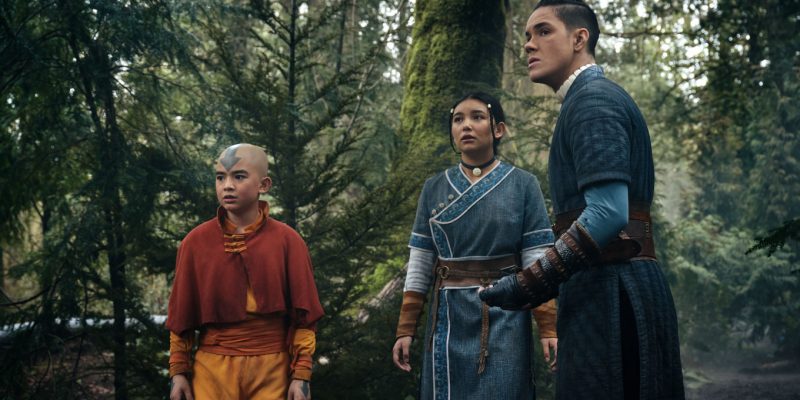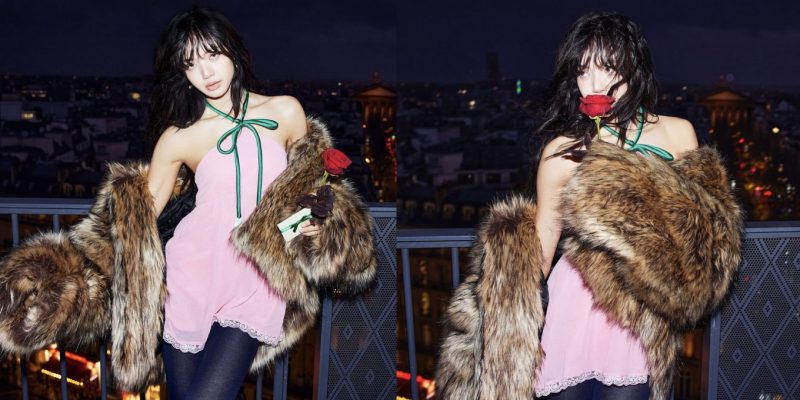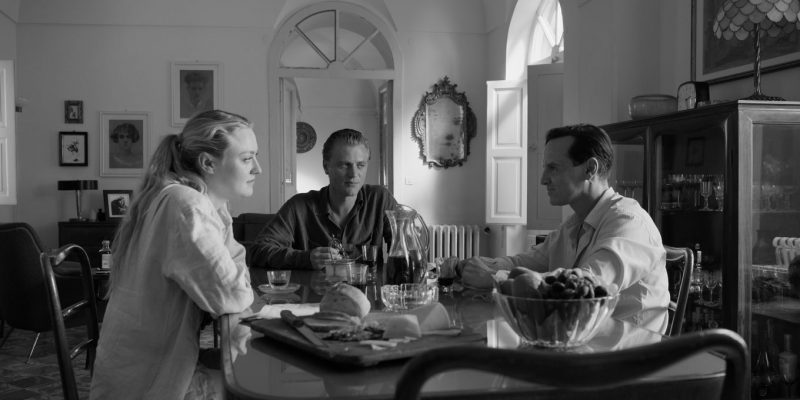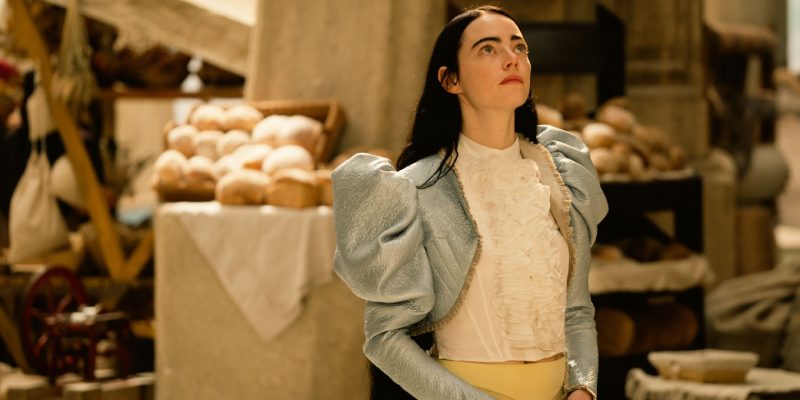Movies & TV
Chewing Gum's Michaela Coel: "We need black women to know that they are authors of their own destiny"
An exclusive interview with the creator and star of the hit series.
by : Kathleen Newman-Bremang- Sep 21st, 2017
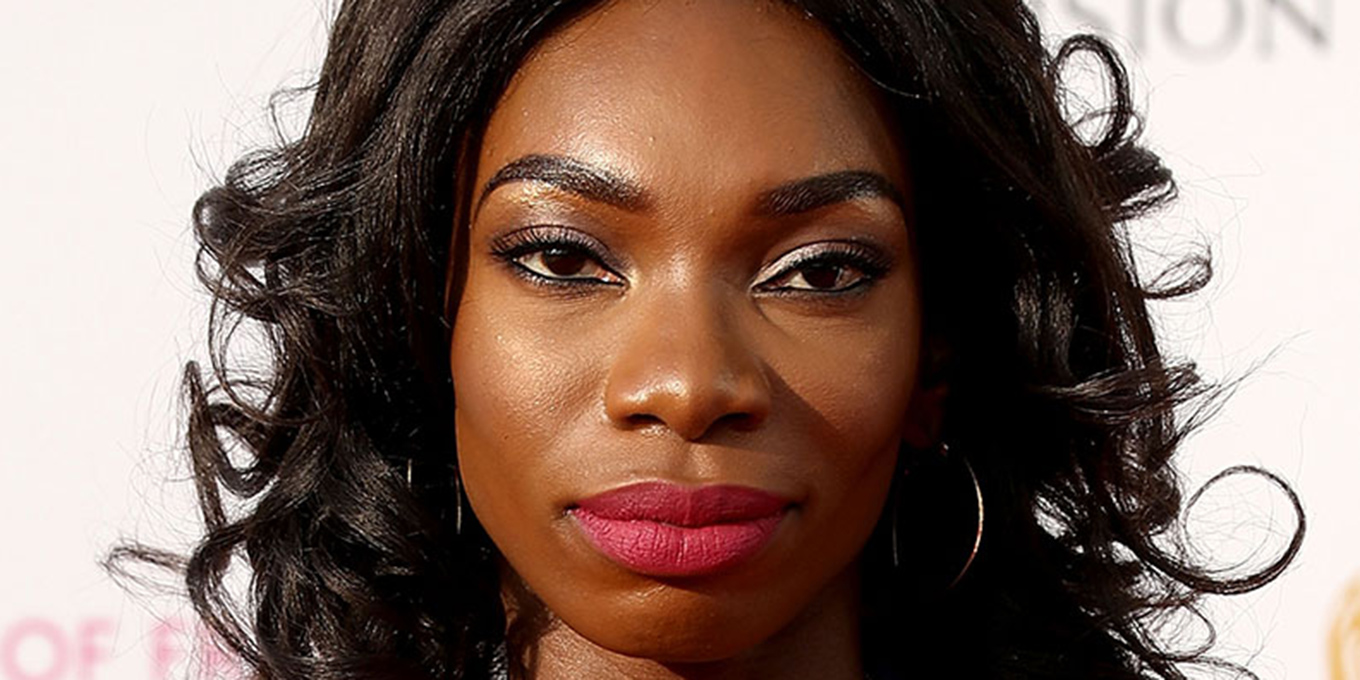
When I call Michaela Coel for a piece in the October 2017 issue of ELLE Canada about black female characters on television, it’s before news will break of her multi-million dollar deal with Netflix. It’s before she will announce that she’ll forego writing more seasons of her singular and hysterical comedy Chewing Gum to pursue other projects. Michaela Coel is already a BAFTA-winning comedy auteur but in the last few weeks, it feels like she’s about to go from a critical darling with a cult following to a bona fide superstar fronting a billion-dollar empire. When that happens, I can say that I saw her first. Chewing Gum introduced us to Tracey, a character so weird, wonderful and unlike any other black woman I had ever seen on television, I fell in love with her instantly (OK, it took me a full episode to get past the spontaneous nose bleeds, then I fell in love).
Here, Michaela Coel talks to me about her groundbreaking series and why/how the depiction of black women on TV is changing. She is so smart and so funny, the conversation was too good not to share in full.
Why was it important for you to make Tracey awkward?
Here’s the thing: I think that what Tracey is doing is being herself and I think that being your entire self in the world that we live in is somehow seen as abnormal—therefore awkward—because someone is behaving in a way that we’re not encouraged to behave in. She’s just decided to be herself and this is what we view as awkward. So for me, I wasn’t really trying to make an awkward person, I was trying to make someone who was unfiltered by the norms and expectations popular culture puts on people, especially black women.
Chewing Gum and Issa Rae’s HBO show Insecure are compared all the time. Do you see the similarities? How do you feel about the comparisons?
I love Issa Rae. I adore her. I’ve hung out with her in LA and we clearly have a kinship and not only her but also Yvonne [Orji] who plays her best friend in the show. And Danielle Brooks from Orange is the New Black. I think that there is some kind of weird thread running through a lot of us black women on TV and that’s something I’m proud to stand in the middle of beside Issa Rae and be like, ‘yas Queen.’ I have nothing to say but extreme excitement. The thing I noticed [about the similarities] is that in Insecure season one Drake is referenced loads and in Chewing Gum, I reference Drake all the time. It was really weird. Like, yoooo, why are we both referencing Drake so much? Drake doesn’t give a shit about us. Why do we keep referencing him? [laughs] It’s an awkward black girl thing!
I’m an awkward black girl who lives in Canada so I appreciate the Drake references.
Oh great! Yes! Because I’m like look, I’ve seen all of Drake’s girlfriends. Drake is never going to go out with anybody that looks like I look like. We just have a thing where we reference Drake and I don’t know why. We say we’re looking for a guy like Drake and it’s like, are you even looking for a guy like Drake? No! But you’re just saying that. You’re just giving Drake some glow. [laughing] We just wanna glow Drake up a little bit and we don’t know why but we do.
What is the “weird thread” running through black women on TV that you mentioned?
You know what, I don’t know whether it’s to do with [the fact that] no matter what continent you’re on, there’s some kind of thing as someone who is born both black and with a vagina, there is something that we all seem to… I don’t know what it is. Like Lena Waithe [Master of None], for example. I love her. It’s like an organic magnet. I can’t explain what it is. Maybe there is some kind of very vague, very small common experience [that] has to do with having the double situation of being born without the penis and without the Anglo-Saxon skin that somehow makes you have a similar experience and tone of your life. I do think there is something there – something peaceful.
You wrote every word of Chewing Gum. Why is it important to have black women write for black women?
I think it depends on what kind of black girl you’re talking about because right now I’m doing a show that isn’t written by a black woman but it’s about a black woman. This black woman is just very different to me. However, I think the idea is very similar to the fact that women should write women’s stories. It doesn’t mean that only women should write women’s stories so I don’t think that only black women can write about black women. I will say that. But I think there are hardly any black female writers and the black female experience on every continent – you know whichever that person comes from- does not exist on TV. Especially in Britain. I don’t see the experience of the black woman on TV. In order to write that, you have to understand it and I think it’s really hard to understand what it is to be a black woman unless you’re a black woman. It’s really hard. When I say black, I’m talking black, my dark– darker than paper bag skin. To live this life and for me, a working class, black female’s life, you can’t write that story unless you live that story. I think that we deserve to add our portrait to the gallery of life, to the gallery of television and we want that portrait to be accurate. In order for that to happen, we have to write those stories ourselves.
Let’s talk about Beyonce. She is very important to me and it seems like she is to you too because of Tracey’s obsession with her.
I love Beyonce but Beyonce is very important to Tracey. I just have to make that clear. [laughs] I have to be careful because I know there is a mafia out there. What I wanted to highlight is that she is worshipping two things she will never be. She will never be Jesus – she will never be a white man. And she will never be Beyonce. Neither of those things can be her god. Tracey has to be her own god.
I think part of Beyonce’s importance to me is because I grew up watching her. So, I want to know about the black women you grew up watching. Can you tell me about the black women you watched on TV and how they influenced you?
It was never black British women because they didn’t exist on TV. I saw Moesha. Moesha is very strong in my brain. The black women on The Fresh Prince of Bel-Air are very strong in my brain. What was that show? Not Different Stokes.
A Different World? With Denise Huxtable?
A Different World! Even though I could hardly remember the name, I do have the images in my head which is very interesting. Seeing visually black people living in a house with braids and stuff has somehow been left very much in my memory.
Did you try to emulate Moesha? How did these characters influence you?
No, I didn’t to be honest with you. In Britain, in London, in working class London – although we are a group of people all very confused about our identity, we are very strong in that confusion so there was very much a style here that I was trying to emulate. I was walking around looking like a fool trying to be this very cool London black girl. Dreadful.
You tweeted a while ago that as a black writer that you get criticism from black women about Tracey and the character and how she should act. Tell me more about that and how that has affected you and your writing.
I don’t know what it’s like in America or Canada but here, we are still very much – our parents are first generation immigrants. We are the first generation of black people born really in this country so we’re carrying a lot of stuff on our shoulders. This is our parents telling us that we should never have sex, we should never mention anything to do with sex. “Don’t come here talking about boys, don’t bring any boys back here. Don’t look at boys. Do your studies, do your studies, do your studies! Go to church, go to church, go to church!” This is what we know. It’s not cool to be sexual. All of this is just oppression. I think Chewing Gum is like a mockery of that entire thing. I think people struggle with the idea of black women being sexual. I had someone come up to me and say, “why do you think it’s OK to write a story about a 23-year old girl who just wants to have sex? I’m 25 and I’m still a virgin. I kept my virginity.” Keeping your virginity is like keeping a plastic bag after you go to Costco. It’s like, so what? It’s all bullshit. Tracey is so free and so un-oppressed and so unaware of everything and I think it’s very uncomfortable for some women to watch. Her sex scenes are not sexy. This is a comedy. Her sex scenes are embarrassing. It’s the kind of embarrassing that everyone has gone through once and they don’t want to remember it. So when they see it on screen, it’s like “no no no no no shut that shit down.” [laughs]
Do you think black women feel ownership over Tracey because she is one of the only – if not the only – black woman like her on TV?
Yes, and I love it. The people who have a kinship with this show, Tracey is inside of them and they are inside of Tracey. Tracey is in their house. She is in their brains. She is all up in there. That is my dream come true, that people feel like they own Tracey and the characters in this show and they identify with them. I couldn’t have a dream come more true than that.
What still needs to be done to have black women fully represented on TV?
In Britain, we need to start presenting the option of being a writer in front of black women. We need to present the idea of being a writer into poorer communities because the majority of black people in this country are working class. We need to let working class people know that their voices are important. We need to encourage black women to know that they are authors of their own destiny, that they have important stories to tell and that they are capable, so magically capable, of writing them and creating important pieces of work that will live forever in history. We are never taught that. For me, this was never an option. I found myself here by complete and utter mistake. Imagine if I knew from when I was young I was going to be a writer? Imagine the shit I would be writing. How old was I when I started writing TV? 25? 26? Once we plant the seed into the heads of young black women and young poor people then we will start to see our stories more prevalent on screen.
Thanks so much for talking to me. I’m even more obsessed with you now. Any last words?
Hm.. Well.. I think it’s a… Well… No, I can’t think of anything. No. See, that looks awkward but really, that’s just me being true to myself. I could have just made something up but I’m like, no don’t. Those are my last words. I don’t know what to say. That’s real. [laughs]
Newsletter
Join our mailing list for the latest and biggest in fashion trends, beauty, culture and celebrity.
Read Next
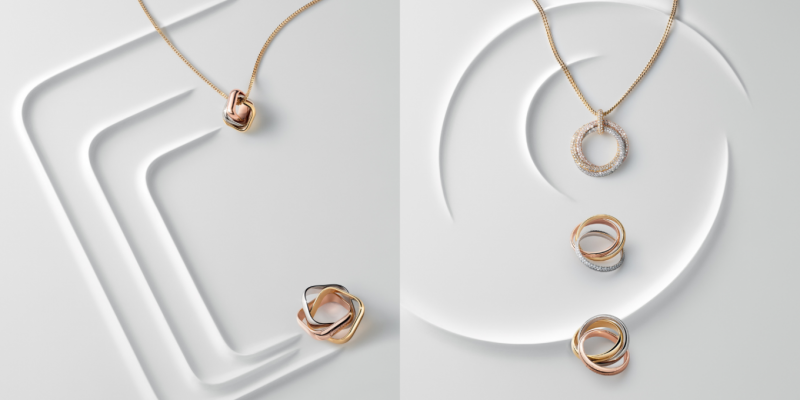
Fashion
Cartier Celebrates 100 Years of the Trinity Ring
What better way to celebrate an anniversary than with a new collection?
by : Allie Turner- Apr 19th, 2024

Culture
How to Spend 48 Hours in Mexico City
Where to discover the hidden gems—markets, mezcal, modern art—of the Central American capital.
by : Jennifer Nguyen- Apr 18th, 2024

Culture
This University Elevates Women to New Professional Heights
You shouldn’t have to pause your life to move forward in your career.
by : ELLE Canada- Apr 16th, 2024

